Mobile Menu

Lauryn Seering
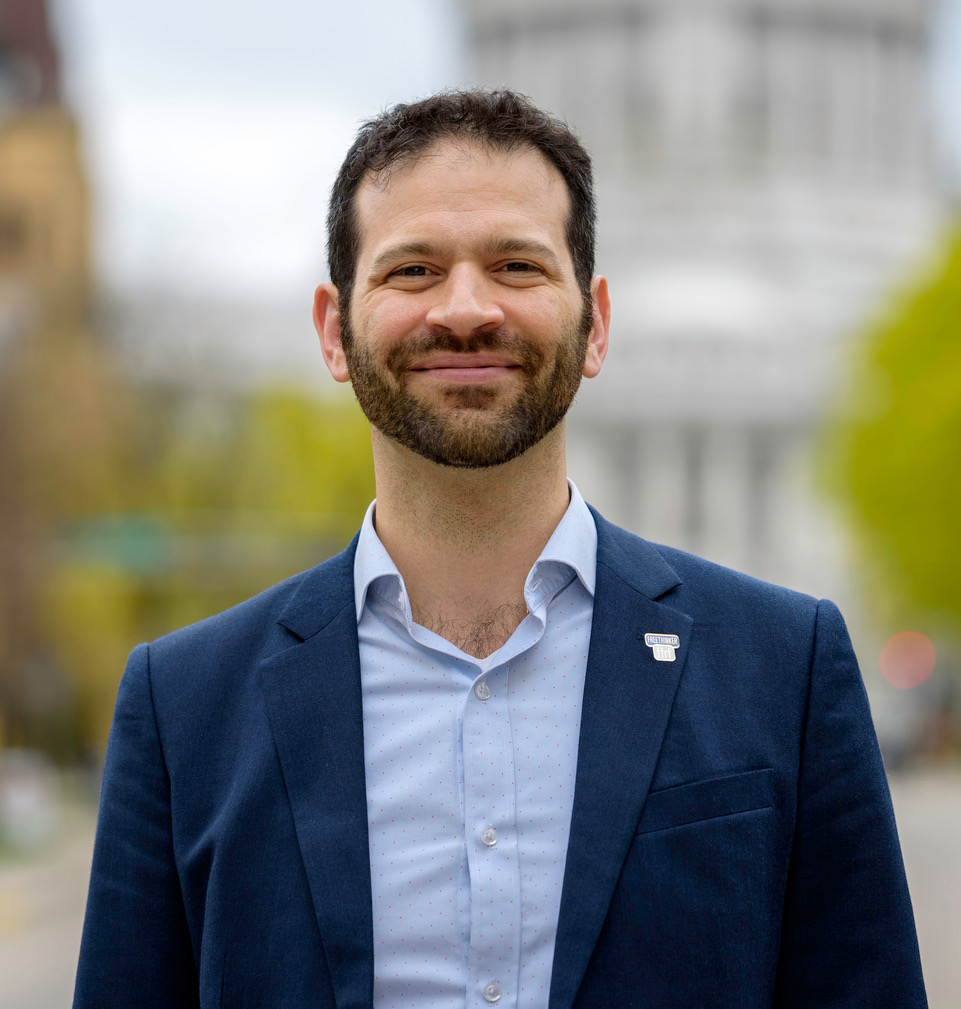 It’s appropriations season on Capitol Hill — the most wonderful time of the year for government affairs folks like me! FFRF is working on appropriations, and I’d like you to get involved.
It’s appropriations season on Capitol Hill — the most wonderful time of the year for government affairs folks like me! FFRF is working on appropriations, and I’d like you to get involved.
Appropriations season is marvelous because the appropriations bills clearly state what the values of government are, what will be funded and what will not. Plus, Congress has a tremendous incentive to get these bills done because they keep the government open. The fun of appropriations is that we can make our voice heard in this process, getting a lot of attention and showing the priorities for the pro-secular majority in the House.
At the beginning of the appropriations season, usually after the first of the year, members talk with their constituents and organizations like FFRF on what should be the spending priorities. Groups like ours petition a member’s office to get our ideas inserted into the appropriations bills.
This year we have two major “asks.” The first is inserting strong nondiscrimination language to protect the separation of state and church, preserve key civil rights threatened by the Trump administration, and fight Christian Nationalism.
We can use appropriations to block funding to these noxious entities and stand up for our values. The Congressional Freethought Caucus chairs, Reps. Jared Huffman and Jamie Raskin, have sent out a “Dear Colleague” letter in which other members can sign on to gain more support for our ideas. The more members that sign on, the better the chances that we will be able to make a clear stand against Christian Nationalism and get our ideas into the appropriations bill.
If you haven’t already, will you please contact your member of Congress (calls are best) and urge him or her to sign on to Huffman and Raskins’ “Anti-Discrimination Measures and Preserve Separation of State and Church” proposal?
Our second appropriations ask is to make sure all Americans have access to secular recovery options, a constitutional right. Religious 12-step programs such as Alcoholics Anonymous are widely available and are often a default treatment option. We are changing that. We want to expand recovery options for all Americans. Last year, we got an insertion into the federal budget that empowers federal agencies to work with secular mutual-support recovery providers. This year, we are building on that idea. We want to make those partnerships mandatory.
If our ideas are accepted by the appropriations committee, the bill will send a clear signal that secular values are American values.
All the best,
![]()
Mark Dann
Director of Governmental Affairs
Freedom From Religion Foundation, Inc.
No Space Force hymn, FFRF appeals to the Pentagon
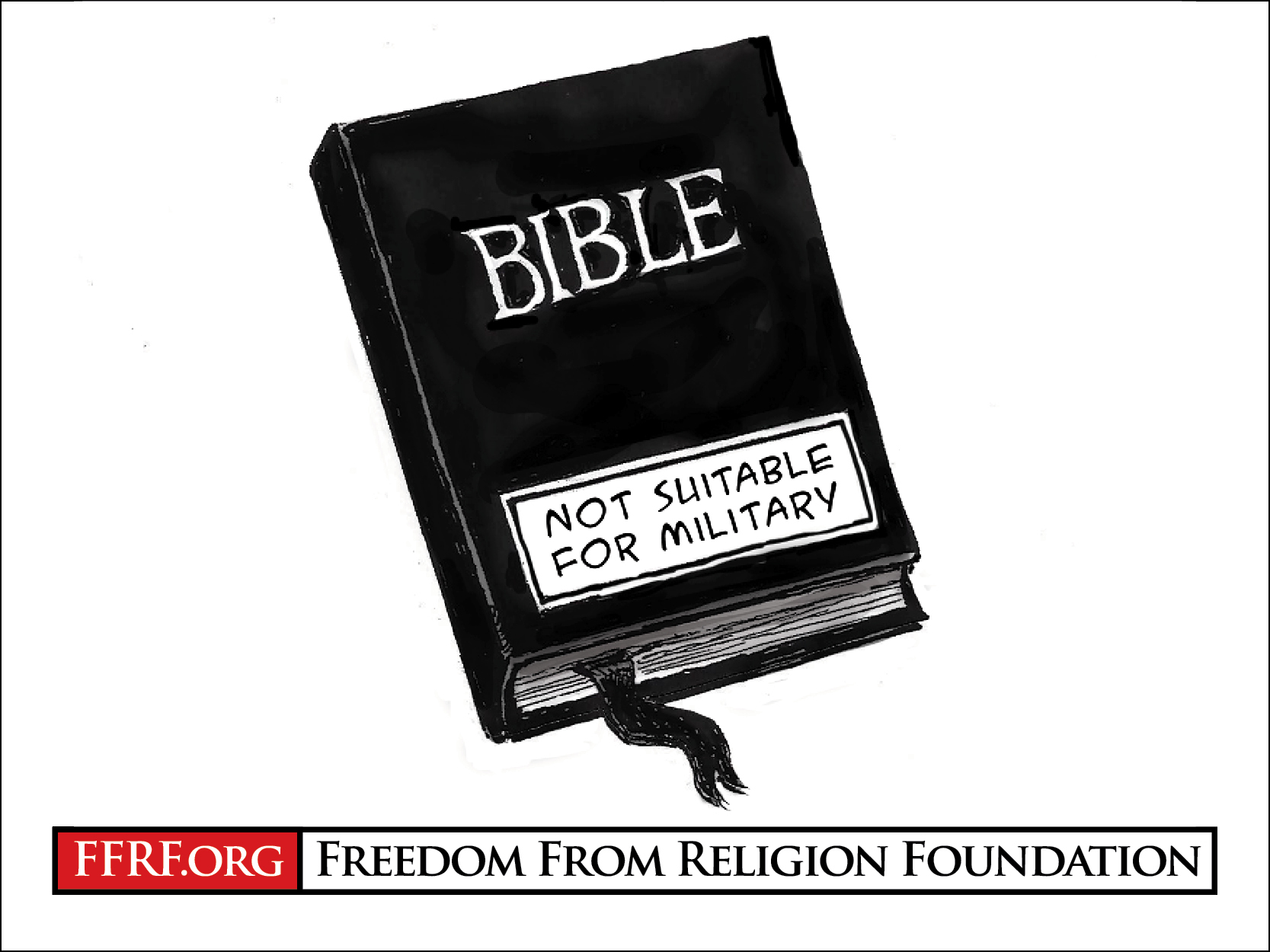
The Freedom From Religion Foundation is seeking assurances from the Pentagon that the newly formed Space Force will not adopt an official hymn.
On March 4, a religious news wire service, Christian News Wire, published an article entitled, “The History of the United States Space Force and the Space Force Hymn,” along with sheet music for a song entitled, “Creator of the Universe, The Space Force Hymn.”
“On Feb. 12, 2020, the Rev. James F. Linzey, who served as a highly accomplished Air Force captain, felt led by Almighty God to write the Space Force Hymn,” the article explained. “He set his pen to paper the next day. On Feb. 22, 2020, in Coffeyville, Kansas, he completed what became ‘Creator of the Universe’ (The Space Force Hymn).”
The lyrics of this hymn are thoroughly religious, have next to nothing to do with the military or space, and are in the style of typical Christian hymns:
O God who rules the heart and mind,
And takes away all fear;
O God who saves with tender might
and calms the wind, draw near.
The presence, felt with boundless love,
Wherever they may go;
Thy Spirit, gentle as a dove,
Be Thou the God they know.
Not all U.S. military personnel believe in God or Christianity, FFRF points out. A quarter of active service members identify as nonreligious.
Any song officially endorsed by the Space Force must be secular, FFRF contends. The “Creator of the Universe” hymn would be appropriate for a Christian church, but is way out of line as an official U.S. military song.
The importance of keeping the U.S. military secular in order to protect the religious liberty of all servicemembers cannot be overemphasized, FFRF asserts. The separation between religion and government is an American original. The crucial work of the U.S. military — defending the U.S. Constitution and the freedoms it guarantees — is directly undermined if the government is allowed to tell its citizens and servicemembers what they ought to believe on matters of religion.
FFRF wishes to thank the Department of Defense for its response to a prior FFRF letter assuring the state/church watchdog that the articles reporting the “U.S. Space Force has designated its own King James Bible for swearing-in ceremonies” were inaccurate. The DOD noted that there are “no official Air Force or Space Force religious or other sacred texts, nor is there any requirement for a member to use any sacred or religious text during swearing-in ceremonies.” FFRF is looking for similar assurances on the space hymn issue.
“Just as designating one particular ‘holy book’ as a government branch’s official ‘holy book’ is improper, it would be improper and unconstitutional for the Space Force to select a sectarian religious hymn as an official song,” FFRF Co-Presidents Dan Barker and Annie Laurie Gaylor write to Judge Advocate General Jeffrey A. Rockwell. “Doing so would amount to an official government endorsement of that song’s religious message.”
The Freedom From Religion Foundation is a national nonprofit organization with more than 30,000 members across the country, with over one-quarter of its members active-duty military or veterans. FFRF works to protect the constitutional separation between state and church, and to educate about nontheism.

A tax office in Florida has removed an obviously Christian sign after the Freedom From Religion Foundation strenuously objected.
A concerned area resident reported to FFRF that inside the Orange County tax collector’s office, located at the West Oaks Mall in Ocoee, there was a religious sign on public display. It read: “Faith — it does not make things easy it makes them possible — Luke 1:37.”
FFRF asked that the county remove the sign from its property, since it constituted an unconstitutional endorsement of religion over nonreligion.
“The Supreme Court has said time and again that the ‘First Amendment mandates government neutrality between religion and religion, and between religion and nonreligion,’” FFRF Staff Attorney Chris Line wrote to Orange County Tax Collector Scott Randolph.
Federal courts, on Establishment Clause grounds, have upheld restrictions on the display of religious materials by government employees on government property, FFRF pointed out. In Berry v. Department of Social Services, the 9th U.S. Circuit of Appeals upheld restrictions on displays of religious materials in workspaces, even private cubicles or offices, because public access to the area could cause someone to “reasonably interpret the presence of visible religious items as a government endorsement of religion.”
And the Orange County tax collector serves all citizens regardless of belief or nonbelief, FFRF emphasized. A blatantly religious message such as the one that was displayed alienated the one-fourth of the population that is nonreligious.
The Orange County tax collector appraised FFRF’s concerns and correctly assessed them.
“My office has brought this to the attention of the West Oaks Mall’s agency manager,” Randolph recently responded. “The sign has been removed.”
FFRF is gratified at the tax authorities’ appropriate response.
“There are no exemptions when it comes to the Constitution,” says FFRF Co-President Annie Laurie Gaylor.
The Freedom From Religion Foundation is a national nonprofit organization with more than 30,000 members across the country, including almost 1,600 members and a local chapter in Florida, Central Florida Freethought Community. Its purposes are to protect the constitutional principle of separation between state and church, and to educate the public on matters relating to nontheism.
Freethought Radio -- March 5, 2020
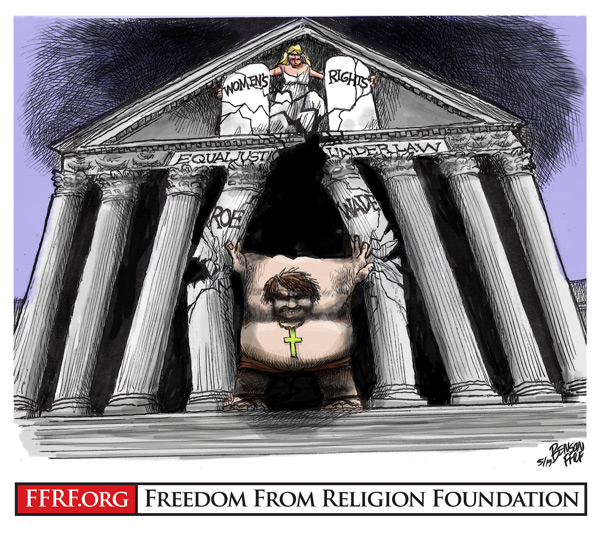
The U.S. Supreme Court heard arguments March 4 in an important abortion challenge — and the Freedom From Religion Foundation is asking it to respect precedent and protect women’s rights.
FFRF has joined 71 other groups in filing a friend-of-the-court brief in the case, which argues that the court must take into account the economic and social circumstances of the women who will suffer the negative consequences of a Louisiana law under consideration. In June Medical Services v. Russo, the court is revisiting an issue that was litigated and settled just a few years prior. The Supreme Court held in 2016 that a Texas law created an “undue burden” to access safe, legal abortion. FFRF is calling for the Supreme Court to stand by its 2016 decision.
The current case involves a Louisiana law that requires physicians who provide abortions to hold “active admitting privileges” at a hospital located within 30 miles of the clinic. The purpose and effect of this provision has been to limit the abortion providers in Louisiana to just one remaining clinic. The Supreme Court had ruled an identical provision unconstitutional in Texas four years ago when Justice Anthony Kennedy was on the bench.
“The Religious Right has the expectation that there’ll be an overturning of settled law due to the new justices,” says FFRF Co-President Annie Laurie Gaylor. “The Supreme Court should honor previous rulings on the subject and ensure reproductive freedom.”
Chief Justice John Roberts is likely to be the deciding vote this time. During oral argument, he asked whether the legal analysis “is a factual one that has to proceed state by state,” indicating that he may view the court’s decision as limited to the facts of the underlying case, ignoring broader issues at stake. Such a determination would likely perpetuate attempts by other states to use doctor admitting privileges as a weapon to limit abortion access.
Other conservative justices were more overt in their disdain for the claims made by the doctors challenging the Louisiana law. In response to a statement that the doctors should be able to challenge the law as third parties because they are the ones being directly regulated, Justice Samuel Alito remarked, “Well, that’s amazing.”
The brief that FFRF signed, which was authored by the National Women’s Law Center, asserts that abortion restrictions like those in Louisiana limit women’s autonomy and dignity by retreating to an old notion that women are solely destined for the home and rearing of children. It also highlights the physical impact on women, pointing out: “Forcing women and others who can become pregnant to carry a pregnancy threatens their health, safety, and bodily autonomy, often with grave results.”
Religion has been the main force behind laws that limit the rights of women when it comes to contraceptives and abortion, compelling the Freedom From Religion Foundation to often speak out on the issue. The state/church watchdog urges the U.S. Supreme Court to not fall for the specious anti-abortion arguments of the Religious Right.
Secular studies pioneer to speak at Nov. FFRF convention
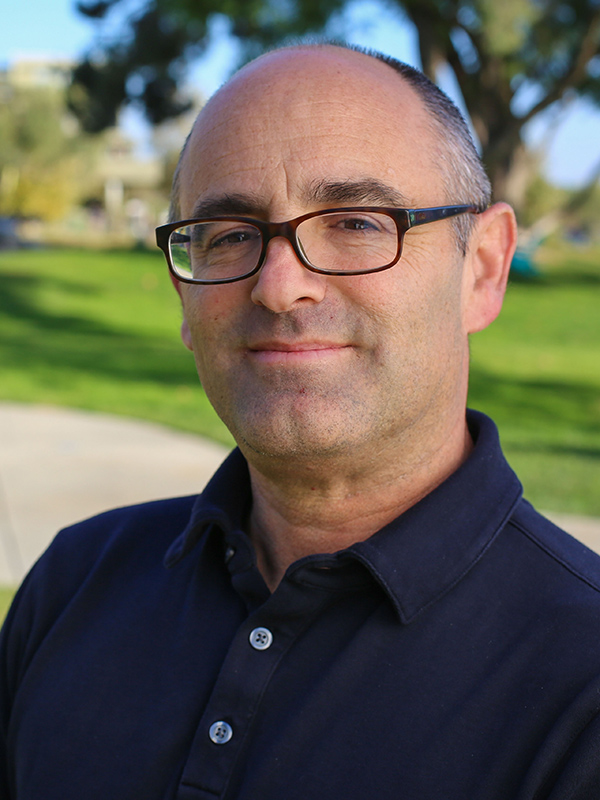 A pioneer scholar of secular studies will be speaking at FFRF’s 43rd annual convention in San Antonio.
A pioneer scholar of secular studies will be speaking at FFRF’s 43rd annual convention in San Antonio.
Phil Zuckerman, a professor of sociology and secular studies at Pitzer College, founded the country’s first secular studies program at that institution. He has done groundbreaking work demonstrating that more secularly inclined countries have a better quality of life. He is the author of several books, including What It Means to be Moral (2019), The Nonreligious: Understanding Secular People and Societies (2016), Living the Secular Life (2014), Faith No More (2012) and Society Without God (2008). Zuckerman is also the editor of several volumes, such as The Oxford Handbook of Secularism (2016) and The Social Theory of W.E.B. Du Bois (2004).
“Secularism with its emphasis on empathy, ethical living, compassion, being in the here and now — it’s the only way we’re going to solve any problems,” Zuckerman said during a recent appearance on FFRF’s “Freethought Matters” TV show. “This is how we’re going to face the struggles of global warming and gun violence.”
Zuckerman will be part of a speaker lineup that includes such icons as Gloria Steinem, Margaret Atwood and Oscar-winner John Irving, among many others. For details on registering and making hotel room registrations, click here. To avoid disappointment, FFRF encourages you to firm up your plans now. The ballroom is limited to 900 attendees and is expected to sell out.
FFRF looks forward to Professor Zuckerman offering his insights at the San Antonio November convention.
“In addition to being a pioneer of ‘secularity,’ Phil Zuckerman is also a livewire who’s always entertaining,” says FFRF Co-President Annie Laurie Gaylor. “Importantly, his research has shown that not only is it possible to be secular and moral, there is actually a positive correlation between the two.”
Other distinguished speakers at FFRF’s upcoming November convention include Katherine Stewart, who is speaking about her new book, The Power Worshippers: Inside the Dangerous Rise of Religious Nationalism. In 2014, she was named Person of the Year by Americans United for her coverage of religion, politics, policy and state/church conflicts. Also joining the roster is Black Skeptics Los Angeles activist Sikivu Hutchinson, an educator, author, playwright and director whose books include Godless Americana: Race and Religious Rebels. Hutchinson will receive FFRF’s Freethought Heroine Award. Brian Bolton, who has endowed a new secular chair at the University of Texas-Austin, will be speaking about his forthcoming work, Why the Bible Is Not a Good Book. Other speakers and honorees will soon be announced.
The Freedom From Religion Foundation, a national nonprofit organization based in Madison, Wis., is the largest U.S. association of freethinkers, representing over 30,000 atheists, agnostics and other like-minded folks.
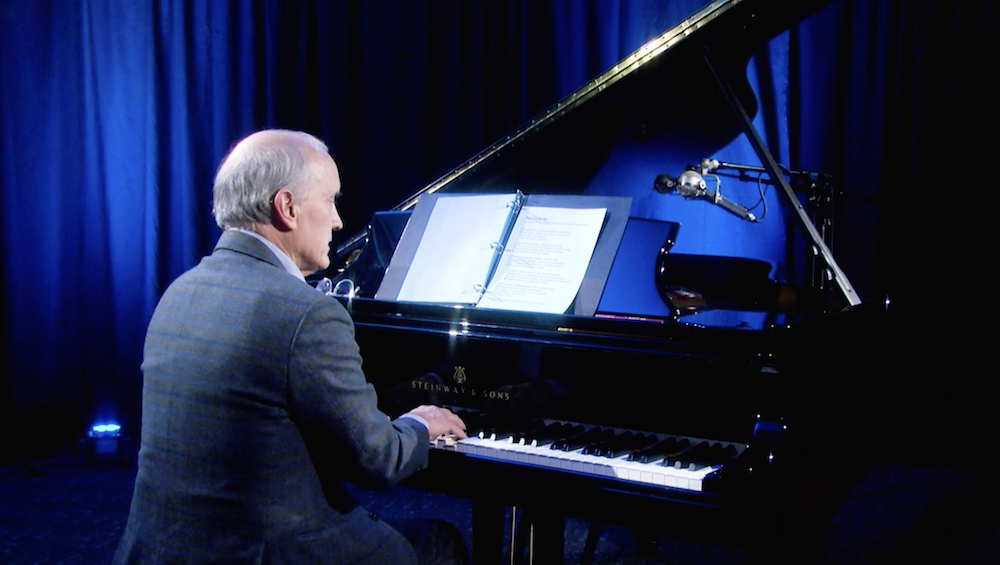
The Freedom From Religion Foundation is highlighting freethought in the Great American Songbook on its “Freethought Matters” TV show for the second week in a row.
In part two of the musical treat this Sunday, FFRF Co-President Dan Barker plays selections from freethinking composers such as Yip Harburg, Jay Gorney, Richard Rodgers, Frank Loesser and Charles Strouse. Barker, an accomplished jazz pianist, recorded the show on the Diane Uhl Steinway Piano at FFRF’s headquarters in Freethought Hall in Madison, Wis.
“There is such a rich freethinking repertoire to choose from that we had to break up the tribute,” says Barker. “And we could have gone on for many more weeks.”
As an antidote to religion on the airwaves and Sunday morning sermonizing, the half-hour show airs Sunday mornings in 11 cities and Sunday evening in FFRF’s hometown of Madison, Wis. And this week’s show is already available on FFRF’s YouTube channel. (Look for the Freethought Matters playlist to watch previous shows.)
The first guest in the new season was U.S. Rep. Jared Huffman, founder of the Congressional Freethought Caucus. Huffman’s appearance on the show made media waves due to his remarks about his colleague Rep. Liz Cheney’s dogmatic stance on the religious oath. World-renowned philosopher Daniel Dennett, acting legend Ed Asner and U.S. Reps. Jamie Raskin and Mark Pocan have recently appeared on the show.
The cities where “Freethought Matters” broadcasts, along with the channels and timings, are listed below:
- Chicago, WPWR-CW (Ch. 50), Sundays at 9 a.m.
- Denver, KWGN-CW (Ch. 2), Sundays at 7 a.m.
- Houston, KUBE-IND (Ch. 57), Sundays at 9 a.m.
- Los Angeles, KCOP-MY (Ch. 13), Sundays at 8:30 a.m.
- Madison, Wis., WISC-TV (Ch. 3), Sundays at 11 p.m.
- Minneapolis, KSTC-IND (Ch. 45), Sundays at 9:30 a.m.
- New York City, WPIX-IND (Ch. 11), Sundays at 8:30 a.m.
- Phoenix, KASW-CW (Ch. 61, or 6 or 1006 for HD), Sundays at 8:30 a.m.
- Portland, Ore., KRCW-CW (Ch. 32), Sundays at 9 a.m. Comcast channel 703 for High Def, or Channel 3.
- Sacramento, KQCA-MY (Ch. 58), Sundays at 8:30 a.m.
- Seattle, KONG-IND (Ch. 16 or Ch. 106 on Comcast). Sundays at 8 a.m.
- Washington, D.C., WDCW-CW (Ch. 50), Sundays at 8 a.m.
FFRF Co-Presidents Annie Laurie Gaylor and her husband, Dan Barker, a former evangelical minister and well-known atheist author, are creators and co-hosts of the show.
The Freedom From Religion Foundation is the nation’s largest association of freethinkers (atheists and agnostics), with more than 30,000 members nationwide. FFRF also works as a watchdog guarding the constitutional separation between religion and government.
The show is produced in the Stephen Uhl Friendly Atheist Studio at Freethought Hall in Madison, Wis., by FFRF’s videographer Bruce Johnson, a public television veteran. Crew includes staff members Bailey Nachreiner-Mackesey, Kristina Daleiden, Lauryn Seering and Chris Line, plus various floor managers, with sound production provided by Audio for the Arts.
Please tune in to “Freethought Matters” . . . because freethought matters.
P.S. Please tune in or record according to the times given above regardless of what is listed in your TV guide (it may be listed simply as “paid programming” or even be misidentified). To set up an automatic weekly recording, try taping manually by time or channel. And spread the word to freethinking friends, family or colleagues about a TV show, finally, that is dedicated to providing programming for freethinkers!
U.S. Supreme Court could entrap reproductive rights
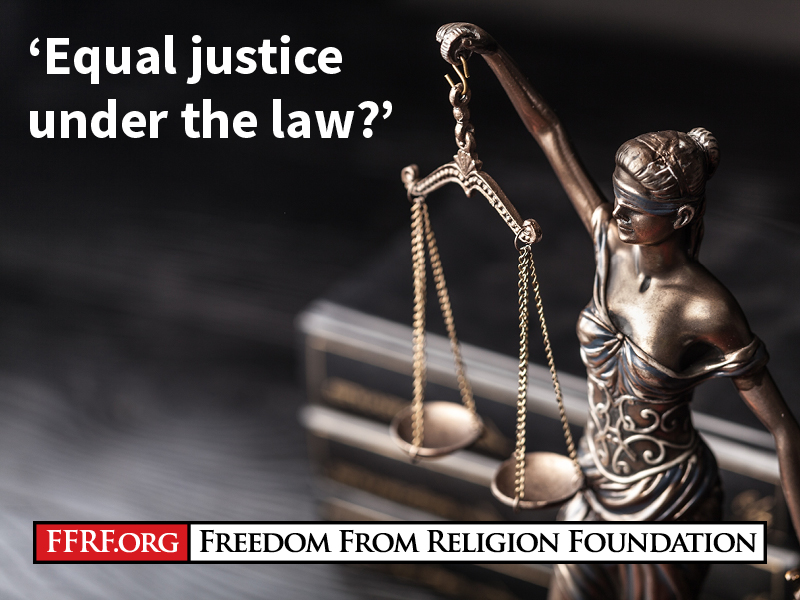
The U.S. Supreme Court is hearing a case Wednesday, March 4, with the chilling potential to deny American women the ability to exercise their right to self-determination under Roe v. Wade.
The case involves a Louisiana law that imposes an unnecessary restriction on abortion providers: a stipulation that they must have admitting privileges at a local hospital. The Supreme Court struck down an identical restriction involving a Texas law in 2016. As the National Women’s Law Center amicus brief, signed by the Freedom From Religion Foundation and 71 other organizations clarifies, if the law is upheld, Louisiana would be left with only one abortion clinic to care for nearly 1 million women of reproductive age in that state. And soon other states dominated by anti-abortion (read: conservative religious) legislatures would follow suit.
The obvious should be pointed out about the admitting privilege law at the center of June Medical Services v. Russo (formerly v. Gee). Clinics already have set up protocol to deal with any rare emergency. As Planned Parenthood documents, abortion is a highly safe procedure. There are complications less than 1 percent of the time. When a woman goes to an emergency room after an abortion, in half the cases it’s for conditions unrelated to abortion. The majority of abortion-related complications are minor. This is a 99 percent safety record. As the New York Times reminds us, you’re more apt to end up in the hospital if you have your wisdom teeth removed than after having an abortion. Abortion, a normal part of gynecological health care, has been stigmatized by the Religious Right and anti-abortion politicians. But, in fact, aborting a pregnancy is far safer than continuing a pregnancy and giving birth — with women 14 times more likely to die during or after giving birth than from complications of an abortion.
The admitting privilege law is one of many phony laws put forth to essentially make abortion illegal without having to formally overturn Roe v. Wade. These are known as TRAP laws (targeted restrictions on abortion providers) and they are designed to close clinics by forcing them to comply with onerous, medically unnecessary requirements, such as making clinics comply with building codes for ambulatory centers, which is unnecessary for safety. This is one reason why the Supreme Court struck down Texas’ TRAP law, identical to Louisiana’s current law, four years ago in Whole Woman’s Health v. Hellerstedt. Justice Stephen Breyer wrote in that case: “In our view, the record contains sufficient evidence that the admitting-privileges requirement led to the closure of half of Texas’ clinics, or thereabouts. Those closures meant fewer doctors, longer waiting times, and increased crowding.”
What has changed since the Whole Woman’s Health ruling? Justice Anthony Kennedy, an abortion supporter and swing vote, has stepped down, and been replaced by Brett Kavanaugh, an archconservative Roman Catholic. Men outnumber women 6-3 on the high court, and Catholics dominate it, with five of the nine-member court of Catholic background (Justice Sonia Sotomayor being the only liberal Catholic). And while he reportedly attended an Episcopal church, Justice Neil Gorsuch was also raised Catholic.
The religious ideology underpinning the crusade to criminalize abortion has never been properly appreciated — or recognized by our courts. The only organized opposition to abortion (and contraceptive) rights is religious, and it’s based on concepts grounded in faith, not in fact, such as ensoulment. The right to abortion is a state/church issue.
Roe v. Wade is as endangered under the current Supreme Court as our Establishment Clause. Those of us who cherish true religious liberty — and the right to be free from religious intrusion in our government, laws and social policy — must march forth as never before. Our rights depend on it.
AG Barr once again attacks secularism
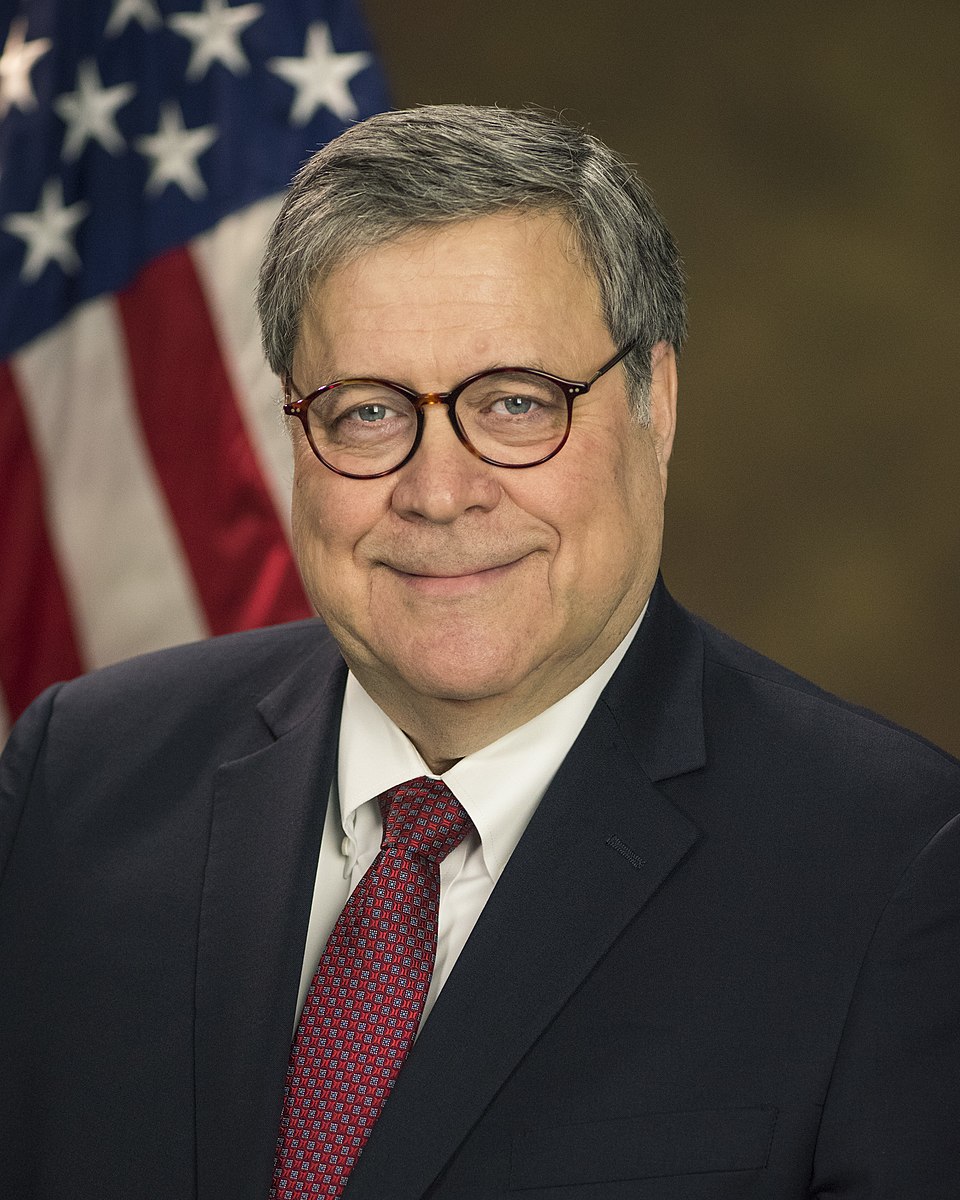 Attorney General William Barr has yet again blamed the lack of religiosity in America for all of the country’s problems.
Attorney General William Barr has yet again blamed the lack of religiosity in America for all of the country’s problems.
In remarks at the 2020 National Religious Broadcasters Convention yesterday, Feb. 26, Barr grossly misrepresented the American Founders’ views on the importance of religion, while giving lip service to the separation between state and church. He bizarrely claimed:
“Experience teaches that, to be strong enough to control willful human beings, moral values must be based on authority independent of man’s will. In other words, they must flow from a transcendent Supreme Being. Men are far likelier to obey rules that come from God than to abide by the abstract outcome of an ad hoc utilitarian calculus.”
Barr made it clear he does not think that laws should be based on trying to make the world a better place. Instead, he thinks that laws should seek to “control” humans by convincing them that if they do not obey the rules, they are displeasing a “Supreme Being.” There is a word for this approach to lawmaking: theocracy. In Barr’s case, he is a proponent of the Christian Nationalism version of theocracy.
In his address to the religious broadcasters, Barr castigated secular government as “totalitarian democracy,” “based on the idea that man is naturally good.” He defined “totalitarian democracy” as “almost always secular and materialistic.”
The Freedom From Religion Foundation condemns Barr’s distorted reading of secular government. America’s secular government allows people of all religious beliefs, and none at all, to work together to make the country better for everyone, without fear that the majority religious sect will impose their rules on the rest of the populace. Trying to control citizens with rules based on religion is thoroughly un-American and unconstitutional. It’s an embarrassing disgrace for the attorney general to endorse such an idea.
It is equally appalling that Barr implicitly condemns more than half a century of firm court precedent guaranteeing civil rights and liberties to both federal and state citizens (based on post-Civil War amendments to the U.S. Constitution). This includes voting rights, privacy rights such as abortion and contraception and LGBTQ equality, secular public education and other such basic liberties. Civil rights by definition should not depend on the state in which one happens to live — but that’s what Barr espouses when he condemns secular, utilitarian federal laws.
The western world has tried what Barr is proposing. The centuries-long humanitarian catastrophe that resulted — aptly called the “Dark Ages” — is what made the Founders of this country realize that religion and government should never be mixed. We must insist on exactly what Barr is attacking: laws that are aimed at making the world a better place for everyone, justified not by some religion’s promises of an eternal reward, but by the best available data and an appeal to universal moral principles. We must reject all calls for basing laws on religious doctrine. It’s dismaying and shameful that the U.S. attorney general, who is tasked with enforcing the law, is an enemy of true religious liberty.
Freethought Radio -- February 27, 2020
FFRF announces its student essay contests for 2020
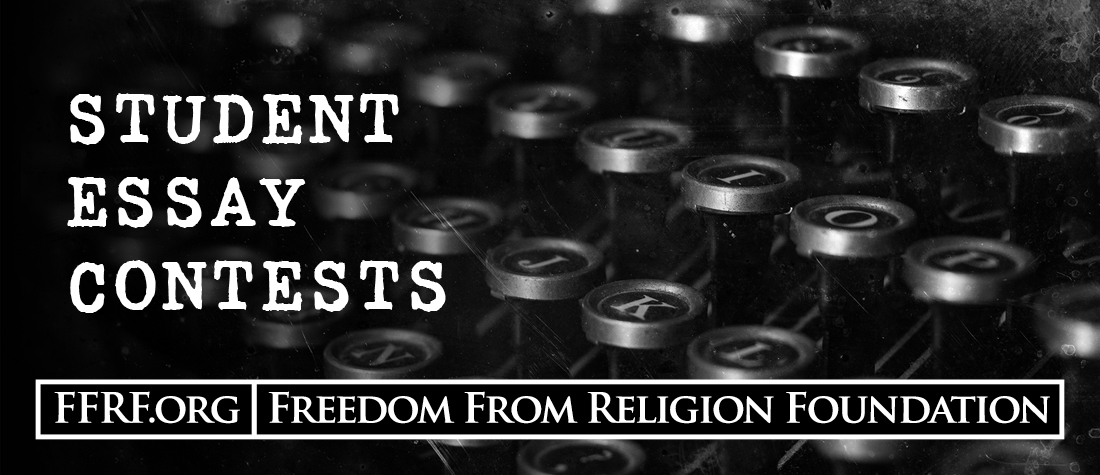
The Freedom From Religion Foundation has announced its four 2020 essay competitions for freethinking students — offering more than $60,000 in total scholarships.
Each of the four contests has 10 prizes: First place — $3,500; second place — $3,000; third place — $2,500; fourth place — $2,000; fifth place — $1,500; sixth place — $1,000; seventh place — $750; eighth place — $500; ninth place — $400; and 10th place — $300. FFRF also offers optional honorable mentions of $200. To encourage student activism, Florida FFRF members Dean and Dorea Schramm are providing a $100 bonus to any winner who’s a secular student club member.
The contests cater to students in different age/class ranges:
William J. Schulz Memorial Essay Contest for College-Bound High School Seniors: High school seniors graduating this spring and attending college in the fall are asked to write about: “Why I’m an unabashed atheist/agnostic/choose your favorite appellation.” Write a persuasive, personal (“first person”) essay about why you reject religion and think others would be better off doing so too. You may wish to include experiences or challenges you have faced as a young freethinker. Word limit: 300-350 words. Deadline: June 1.
Michael Hakeem Memorial Essay Contest for Freethinking College Students: Currently enrolled college students (up to age 24) may write on: “The Necessity of Freethought — Why I Am Not Religious.” Although we are asking for a personal essay (written in “first person”) about why you reject religion, you may also wish to approach this from a philosophical or social science point of view. You may additionally include personal experiences or challenges you have faced as a young freethinker (atheist, agnostic).
Word limit: 450-650. Deadline: July 1.
The David Hudak Memorial Contest for College Students of Color, open to students of color ages 17-21 (college-bound high school seniors to currently enrolled college students), is on the topic of: “Living and Thriving Without Religion.” Write a personal issue (in the “first person”) about why you are not religious and its benefits. Please be sure to explain why you reject religion. You may wish to include challenges you have faced in being nonreligious. You may also wish to include recommendations on how the secular community can better engage people of color. This contest is offered to provide support and acknowledgment for freethinking students of color, as a minority within a minority. The other FFRF student contests are open to all students. Students may only enter one FFRF contest annually. Word limit: 400-600. Deadline: July 15.
Brian Bolton Essay Contest for Graduate/“Older” Students: Graduate students (through age 30) and “older” undergrads (ages 25-30) are asked to write on the topic: “Why God has no place in political debate; the growing dangers of Christian Nationalism.” In the context of this year’s presidential and congressional elections, make the case for keeping “God” and religion out of the political debates, and the dangers posed when public officials pander and mix religion with government. Word limit: 550-750. Deadline: Aug. 1.
(FFRF thanks Phil Zuckerman, author and professor of sociology and secular studies at Pitzer College, for suggesting the topics for the college and grad school competitions.)
Additional prompts on the topics and and contest rule requirements can be found at: ffrf.org/studentessay Students are required to submit their essay via the online application, and should carefully review all contest rules. All eligible entrants will receive a digital year-long student membership in FFRF.
FFRF is appreciative of FFRF members who make the effort to contact local high schools, colleges and universities to help publicize its competitions. (See “ads” on the back inside cover of the Freethought Today wrap that may be copied or cut out and sent to your local schools or student acquaintances.)
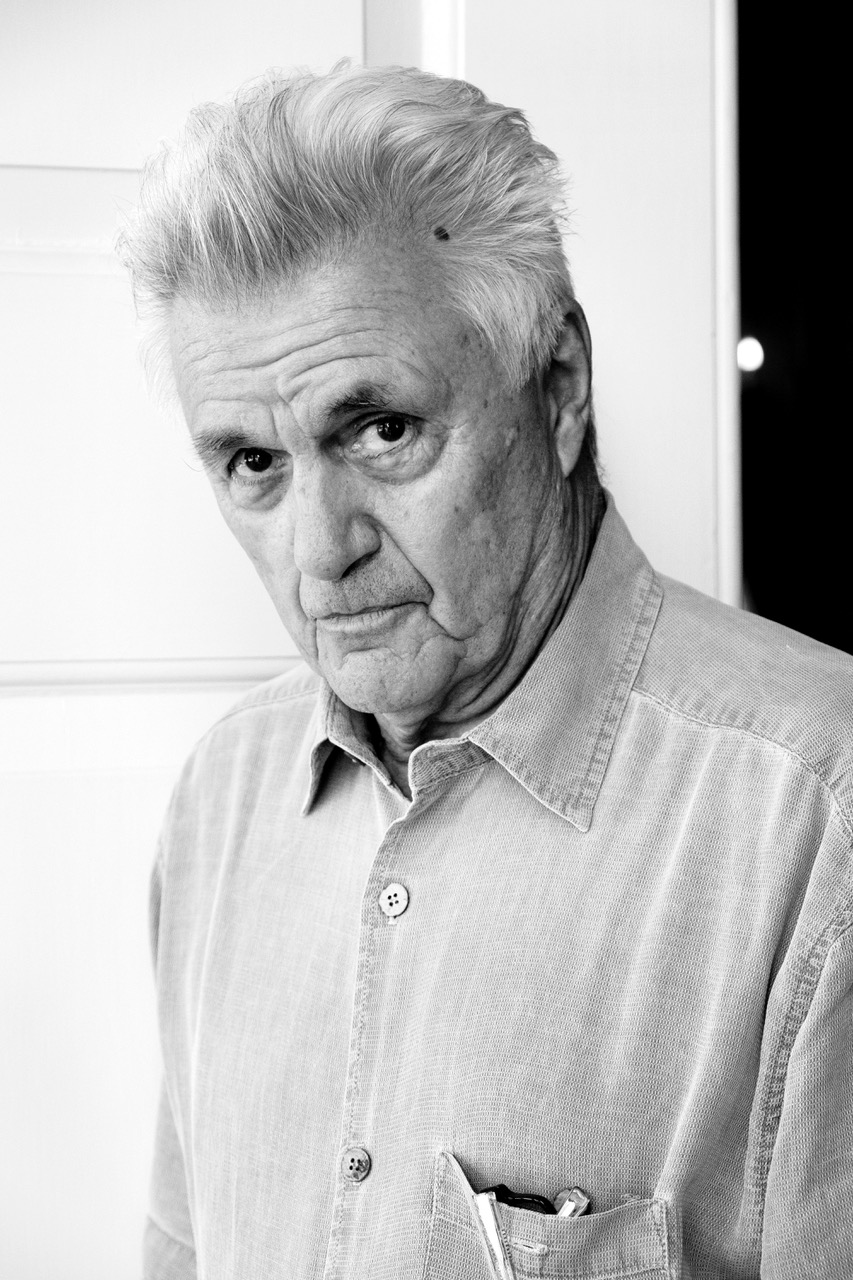 The Freedom From Religion Foundation is delighted to announce that acclaimed author and Oscar-winner John Irving has agreed to speak at FFRF’s 43rd annual convention in San Antonio.
The Freedom From Religion Foundation is delighted to announce that acclaimed author and Oscar-winner John Irving has agreed to speak at FFRF’s 43rd annual convention in San Antonio.
Irving will receive FFRF’s Emperor Has No Clothes Award, for statements such as this remark in a New York Times op-ed in June 2019: “Freedom of religion in the United States also means freedom from religion.” He will be part of a speaker lineup that includes fellow authors Margaret Atwood and Gloria Steinem, among many others. Irving will speak after the convention banquet dinner on Saturday, Nov. 14, followed by a book-signing. For details on registering and making hotel room registrations, click here. To avoid disappointment, FFRF encourages you to firm up your plans now. The ballroom is limited to 900 attendees and is expected to sell out.
Irving has been nominated for a National Book Award three times — winning it in 1980 for his novel The World According to Garp. He received an O. Henry Award in 1981 for his short story “Interior Space.” In 2000, Irving won the Oscar for Best Adapted Screenplay for “The Cider House Rules.” In 2013, he won a Lambda Literary Award for his novel, In One Person. In 2018, the Dayton Literary Peace Prize honored Irving with the Richard C. Holbrooke Distinguished Achievement Award.
“There’s hardly a writer alive who can match his control of the omniscient point of view,” states The Washington Post.
“John Irving has achieved global fame due to his mastery of the writing craft,” says FFRF Co-President Annie Laurie Gaylor. “And he has always been a steadfast defender of women’s rights, that of sexual minorities and for keeping religion out of government.”
The Canadian novelist achieved critical and popular acclaim after the international success of Garp in 1978. Many of Irving’s novels, including The Cider House Rules (1985), A Prayer for Owen Meany (1989) and A Widow for One Year (1998), have been bestsellers. Irving has sold over 12 million books in 35 languages.
The World According to Garp, published in 1978, was Irving’s fourth novel and his first international bestseller. A movie adaptation of the novel was released in 1982 and earned two Academy Award nominations. “The World According to Garp was always a feminist novel, but in the passage of time I’ve become more of a feminist. Why? Because the inequalities and discrimination women faced in the start-up days of the women’s movement haven’t gone away,” Irving has said.
In 1999, The Cider House Rules, with an abortion rights theme, was made into a critically acclaimed film by director Lasse Hallström and won two Academy Awards: Best Adapted Screenplay for Irving and Best Supporting Actor for Michael Caine. The film also won the Maggie Award for Irving, named after Planned Parenthood founder Margaret Sanger, in recognition of exceptional achievement in support of reproductive rights.
Irving is currently at work on his 15th novel, a ghost story called Darkness as a Bride. He lives in Toronto.
Other renowned speakers at FFRF’s upcoming November convention include Katherine Stewart, who is speaking about her new book, The Power Worshippers: Inside the Dangerous Rise of Religious Nationalism. In 2014, she was named Person of the Year by Americans United for her coverage of religion, politics, policy and state/church conflicts. Also joining the lineup is Black Skeptics Los Angeles activist Sikivu Hutchinson, an educator, author, playwright and director whose books include Godless Americana: Race and Religious Rebels. Hutchinson will receive FFRF’s Freethought Heroine Award. Brian Bolton, who has endowed a new secular chair at the University of Texas-Austin, will be speaking about his forthcoming work, Why the Bible Is Not a Good Book. Other speakers and honorees will soon be announced.
The Freedom From Religion Foundation, a national nonprofit organization based in Madison, Wis., is the largest U.S. association of freethinkers, representing over 30,000 atheists, agnostics and other like-minded folks.
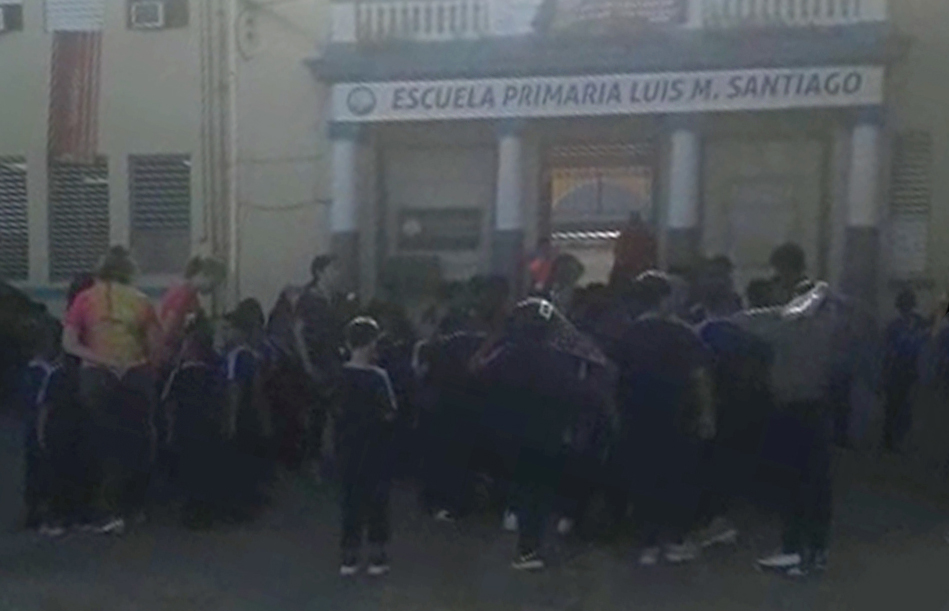
The Freedom From Religion Foundation today, Feb. 27, filed a federal lawsuit against Puerto Rico’s Education Secretary and a principal on behalf of a family subjected to forced prayers and bullying in a public primary school.
Since September 2019, in direct contradiction of well-established constitutional law, officials at the Luis M. Santiago School, a public school in Toa Baja, have reportedly organized, led and coerced students to participate in 50-minute prayer sessions on school property every other Monday during the school day. FFRF is representing two of these children and their mother at the U.S. District Court for the District of Puerto Rico along with Humanistas Seculares De Puerto Rico, a leading Puerto Rican secular humanist organization that the mother belongs to.
As far back as 1962, the U.S. Supreme Court has held that “the constitutional prohibition against laws respecting an establishment of religion must at least mean that in this country it is no part of the business of government to compose official prayers for any group of the American people,” FFRF points out.
The family brings this action under pseudonyms to protect the mother and her two minor children from social ostracism, retaliation and even physical harm. Eligio Hernandez Perez is being sued in his official capacity as the secretary of the Department of Education. Luz Ramos is the principal of the Luis M. Santiago School and is being sued in both her official and individual capacities, since the complaint alleges she developed the school prayer practice at issue.
According to the filed complaint, while dropping off her children at school on Sept. 3, 2019, the mother observed staff collecting all students in the school’s front yard in order to participate in a Christian prayer. The initial part of the prayer was conveyed by a schoolteacher with use of a microphone and speakers. Upon observing this prayer, the mother immediately confronted the first available school official, who was also taking part in the prayer, to protest and to request that her children be exempted from participating.
A school official informed the mother that participation in the school-led prayer was mandatory for all students. The mother subsequently requested an urgent meeting with the school principal, but this still hasn’t taken place. The mother next discussed the school prayer incident with her child’s homeroom teacher and the school social worker, who suggested that the mother could request that her children be exempted from participation in future prayers. However, the teacher subsequently informed the mother that if her children, both excellent students, did not participate in the prayers, marks would be made in their student records indicating that they had cut class.
Since last September, staff-led prayers have taken place regularly at the school on alternating Mondays, starting at approximately 9 a.m. and lasting for approximately 50 minutes. Every prayer delivered during these school prayer sessions has been a Christian prayer. In an effort to avoid these prayers, the mother has held her children out of school. Teachers for both the students have threatened to punish the children for unexcused absences or for being tardy as a result of the mother’s efforts to avoid the school-led prayers.
Moreover, Doe 2’s teacher publicly outed the family as non-Christian to the father of one of Doe 2’s classmates, whose son told Doe 2 that, “If you believe in God, you go to Heaven, if you don’t believe in God, like your mother, you will go to Hell.”
The plaintiffs are seeking an injunction prohibiting the defendants from continuing to coerce student participation in school-led prayer, as well as a declaration that the defendants’ conduct violates the Establishment Clause of the First Amendment and the free exercise rights of the individual plaintiffs.
“We look forward to ending these egregious practices and upholding the right of this American family to a public education free from religious indoctrination and divisiveness,” says FFRF Co-President Annie Laurie Gaylor.
FFRF Attorneys Samuel Grover and Madeline Ziegler are representing the Freedom From Religion Foundation, while local counsel Carlos A. Cintron Garcia is representing the Humanistas Seculares De Puerto Rico. The case number is: 3:20-cv-01111
Mo. school district follows FFRF’s wise counsel — not AG’s bad advice
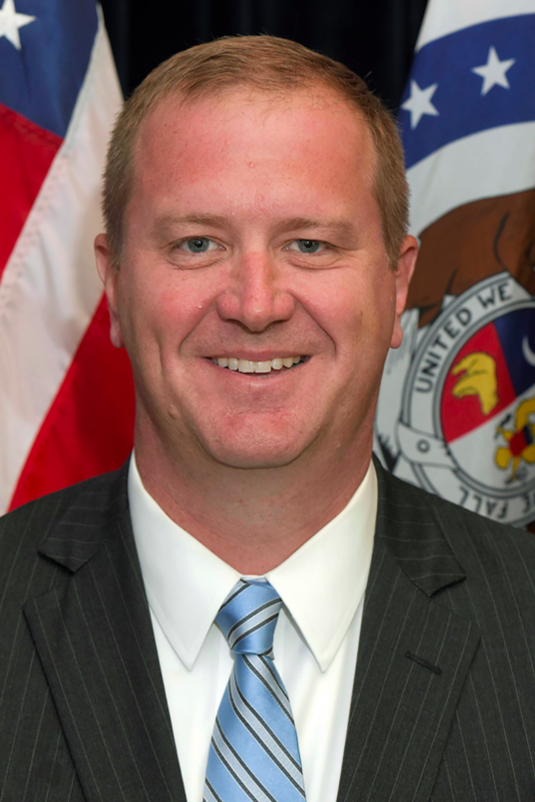 The Freedom From Religion Foundation has scored a constitutional touchdown against the Missouri attorney general after a school district ignored his advice about football team prayers.
The Freedom From Religion Foundation has scored a constitutional touchdown against the Missouri attorney general after a school district ignored his advice about football team prayers.
FFRF had sent a letter last October to Cameron R-1 School District Superintendent Matt Robinson about Cameron High School’s head football coach, Jeff Wallace, and assistant coach, David Stucky, holding religious “chapel” services for players before and after football games. The coaches prayed with players and read and discuss bible verses.
In reaction to FFRF’s complaint, Attorney General Eric Schmitt dispatched a missive to the district urging it to disregard FFRF’s concerns and mischaracterizing FFRF’s arguments, even advising the district that the coach’s actions are lawful. FFRF quickly corrected the record.
“Perhaps you were misinformed about the facts of the case,” FFRF Staff Attorney Chris Line wrote to Schmitt. “If not, your letter shows either a disturbing ignorance of the U.S. Constitution or a deliberate attempt to subvert the protections it contains.”
FFRF urged Cameron R-1 School District to take immediate action to stop school-sponsored prayers or religious worship occurring within the district’s athletic programs. The school district recently sent FFRF a note indicating that it is heeding FFRF’s counsel.
“Employees of the district were reminded of the district’s board policy regarding prayer at school or at school-sponsored events and were also instructed not to lead students in prayer, initiate a prayer with students or cause a student to initiate prayer,” stated Robinson. “This matter has therefore been resolved.”
FFRF is gratified that the school district decided to ignore the Missouri attorney general’s misbegotten intervention and instead chose to uphold the Constitution.
“Even a school district can figure out when an AG is pandering to the Religious Right, and not abiding by the Constitution,” says FFRF Co-President Annie Laurie Gaylor. “We admire the district’s constitutional steadfastness.”
The Freedom From Religion Foundation is a national nonprofit organization with more than 30,000 members across the country, including over 400 in Missouri. FFRF’s purposes are to protect the constitutional principle of separation between church and state, and to educate the public on matters relating to nontheism.
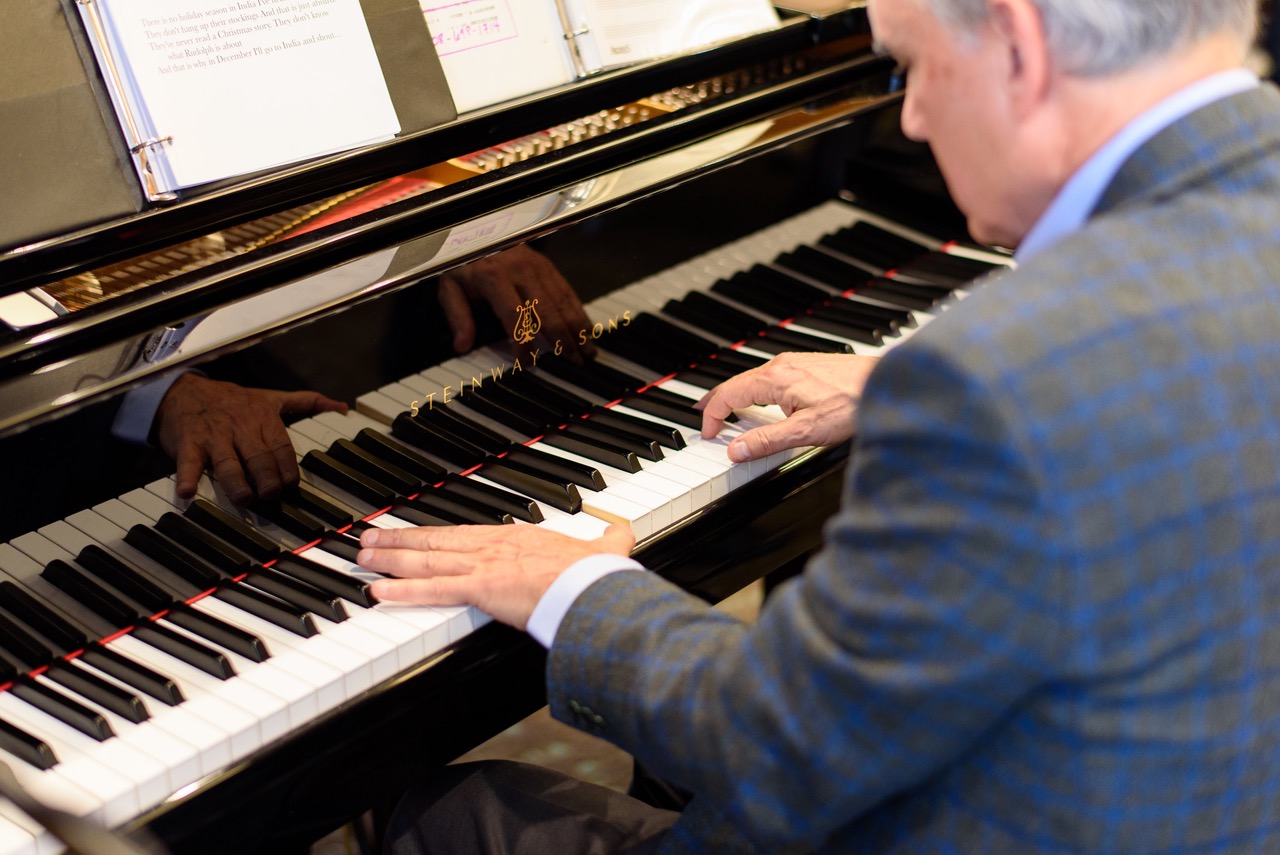
The Freedom From Religion Foundation is spotlighting freethought in the Great American Songbook on “Freethought Matters” the next two weeks.
In part one of the two-part musical this Sunday, FFRF Co-President Dan Barker plays selections from freethinking composers such as Stephen Foster, Scott Joplin, Jerome Kern, Irving Berlin and George & Ira Gershwin. Barker, an accomplished jazz pianist, recorded the show on the Diane Uhl Steinway Piano at FFRF’s headquarters in Freethought Hall in Madison, Wis.
“The public is not aware that so many legendary composers were nonbelievers,” says Barker. “It’s given me special pleasure to share their irreverent views and play their compositions.”
As an antidote to religion on the airwaves and Sunday morning sermonizing, the half-hour show airs Sunday mornings in 11 cities and Sunday evening in FFRF’s hometown of Madison, Wis. And this week’s show is already available on FFRF’s YouTube channel. (Look for the Freethought Matters playlist to watch previous shows.)
The first guest in the new season was U.S. Rep. Jared Huffman, founder of the Congressional Freethought Caucus. Huffman’s appearance on the show made media waves due to his remarks about his colleague Rep. Liz Cheney’s dogmatic stance on the religious oath. World-renowned philosopher Daniel Dennett, acting legend Ed Asner and U.S. Reps. Jamie Raskin and Mark Pocan have recently appeared on the show.
The cities where “Freethought Matters” broadcasts, along with the channels and timings, are listed below:
- Chicago, WPWR-CW (Ch. 50), Sundays at 9 a.m.
- Denver, KWGN-CW (Ch. 2), Sundays at 7 a.m.
- Houston, KUBE-IND (Ch. 57), Sundays at 9 a.m.
- Los Angeles, KCOP-MY (Ch. 13), Sundays at 8:30 a.m.
- Madison, Wis., WISC-TV (Ch. 3), Sundays at 11 p.m.
- Minneapolis, KSTC-IND (Ch. 45), Sundays at 9:30 a.m.
- New York City, WPIX-IND (Ch. 11), Sundays at 8:30 a.m.
- Phoenix, KASW-CW (Ch. 61, or 6 or 1006 for HD), Sundays at 8:30 a.m.
- Portland, Ore., KRCW-CW (Ch. 32), Sundays at 9 a.m. Comcast channel 703 for High Def, or Channel 3.
- Sacramento, KQCA-MY (Ch. 58), Sundays at 8:30 a.m.
- Seattle, KONG-IND (Ch. 16 or Ch. 106 on Comcast). Sundays at 8 a.m.
- Washington, D.C., WDCW-CW (Ch. 50), Sundays at 8 a.m.
FFRF Co-Presidents Annie Laurie Gaylor and her husband, Dan Barker, a former evangelical minister and well-known atheist author, are creators and co-hosts of the show.
The Freedom From Religion Foundation is the nation’s largest association of freethinkers (atheists and agnostics), with more than 30,000 members nationwide. FFRF also works as a watchdog guarding the constitutional separation between religion and government.
The show is produced in the Stephen Uhl Friendly Atheist Studio at Freethought Hall in Madison, Wis., by FFRF’s videographer Bruce Johnson, a public television veteran. Crew includes staff members Bailey Nachreiner-Mackesey, Kristina Daleiden, Lauryn Seering and Chris Line, plus various floor managers, with sound production provided by Audio for the Arts.
Please tune in to “Freethought Matters” . . . because freethought matters.
P.S. Please tune in or record according to the times given above regardless of what is listed in your TV guide (it may be listed simply as “paid programming” or even be misidentified). To set up an automatic weekly recording, try taping manually by time or channel. And spread the word to freethinking friends, family or colleagues about a TV show, finally, that is dedicated to providing programming for freethinkers!

